Greenhouse Gas Emissions

Report: Gas-Powered Lawn Tools Produce Emissions Comparable to Cars
A Maryland study recommends switching to electric tools to reduce greenhouse gas emissions and meet the state’s climate goals.
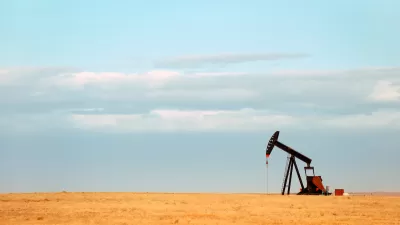
Do Environmentalists Confuse Oil Production With Oil Demand?
Samantha Gross, the director of the Energy Security and Climate Initiative at the Brookings Institution, argues that the key to reducing emissions is to do the hard work of reducing oil demand rather than focusing on ending U.S. oil drilling.
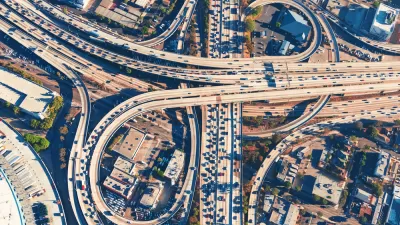
L.A. Times: California Must Shift Transportation Spending Priorities
Despite its ambitious emissions reduction goals, California continues to spend a majority of transportation funds on car-centric infrastructure.

California to Invest $750 Million in 16 ’Jobs-Rich’ Areas
California is funding a sweeping package of investments expected to deliver big benefits in housing affordability and greenhouse gas emission reductions.

The Materials Movement: Advancing Low-Carbon, Healthy Materials for Sustainable Communities
Every component of a building, from the concrete foundation to the paint on the walls, has an impact on human health, the climate, and ecosystems around the globe. Building materials—once overlooked in real estate’s sustainability efforts—are now bei
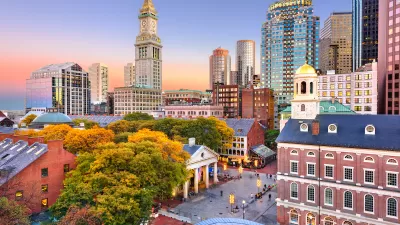
Boston Grant Program Supports Greener Affordable Housing
The city wants to achieve net-zero emissions by 2050.

California Adopts CEQA Reforms for Infrastructure, Leaves Out Residential
The state of California adopted reforms to the California Environmental Quality Act (CEQA) pertaining to climate-friendly infrastructure projects, but residential development interests hoping for relief from CEQA will have to wait.

Landmark Climate Decision Rules in Favor of Montana Youth
The ruling in Held v. Montana is the first of its kind in the United States, according to reports.

California First in the Nation to Limit Embodied Carbon in Buildings
California’s Building Code accomplished a first-in-the-nation step to mitigate carbon emissions from the construction and maintenance of buildings, by limiting embodied carbon in some commercial and school buildings.

Infrastructure Bill’s Emission Reductions Allotments Fund Highway Projects Instead
The Infrastructure Investment and Jobs Act of 2021 promised to achieve major progress on emissions reductions and climate resilience. A total of 38 states used the bill to fund emissions- and pollution-producing car-centric infrastructure instead.
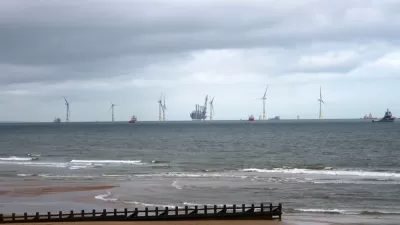
Offshore Wind Power Projects Face Financial Headwind
As offshore wind projects along the East Coast stall, so do the country’s emissions reduction goals.

Planning for Proximity, for the Climate’s Sake
A new global platform will help the world identify and encourage opportunities for more proximity in the built environment—development patterns that can help reduce sources of greenhouse gas emissions and other forms of pollution if built well.
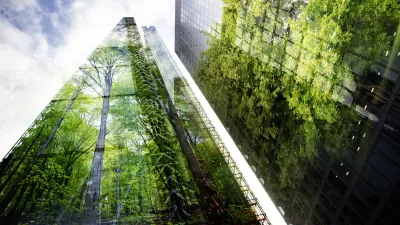
‘Biourbanism’ Combines Nature and Data to Boost Resilience
The concept of biourbanism views cities as natural systems, but brings a data-driven approach to quantifying and mitigating the impacts of climate change.
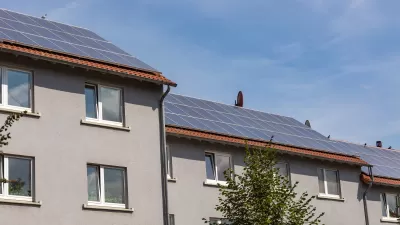
HUD Announces Grants for Efficiency Retrofits in Multifamily Housing
A new program will fund solar panels, heat pumps, and other measures aimed at reducing emissions, improving air quality and resident health, and reducing heating and cooling costs.
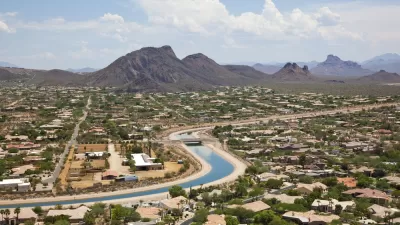
Mitigating the Environmental Footprint of Sprawl
There is still time to reverse the environmental outcomes of American suburbs. Researchers in Los Angeles, considered by many to be the poster child for U.S. sprawl, have been at work on the problem for years.
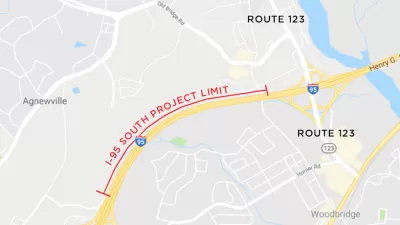
I-95 Widening Breaks Ground in Virginia
A mile-and-a-half-long section of Interstate 95, which handles 80,000 vehicle trips a day, will be expanded in Virginia. The project includes a new shoulder, lighting, and noise walls.
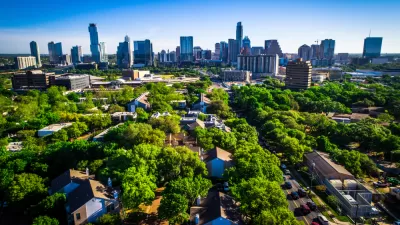
Street Trees as Climate Resilience
An Austin-based urban designer explains how protecting and encouraging the planting of street trees will make the city more resilient to increasingly common extreme heat events, among many other benefits.
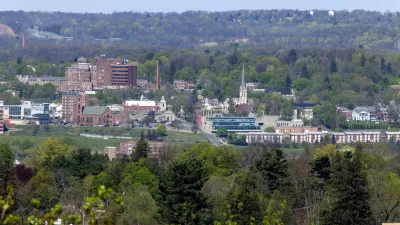
Hudson Valley City Bans Fossil Fuels in New Construction
Beacon will require all-electric appliances in new buildings starting next year.

IPCC Report: The World Is Running Out of Time on Climate Change
The planet is not doing enough to reduce greenhouse gas emissions, according to a recent report published by the United Nations’ International Panel on Climate Change (IPCC).
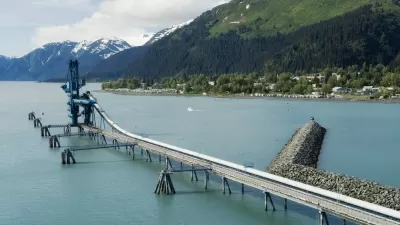
Alaska to Consider Carbon Offset and Sequestration Program
Alaska could follow in the footsteps of California and Europe by leveraging the state’s natural resources to create a carbon offset and sequestration program, mitigating the environmental effects of its industries and raising revenue for the state.
Pagination
Urban Design for Planners 1: Software Tools
This six-course series explores essential urban design concepts using open source software and equips planners with the tools they need to participate fully in the urban design process.
Planning for Universal Design
Learn the tools for implementing Universal Design in planning regulations.
Caltrans
Smith Gee Studio
Institute for Housing and Urban Development Studies (IHS)
City of Grandview
Harvard GSD Executive Education
Toledo-Lucas County Plan Commissions
Salt Lake City
NYU Wagner Graduate School of Public Service


































